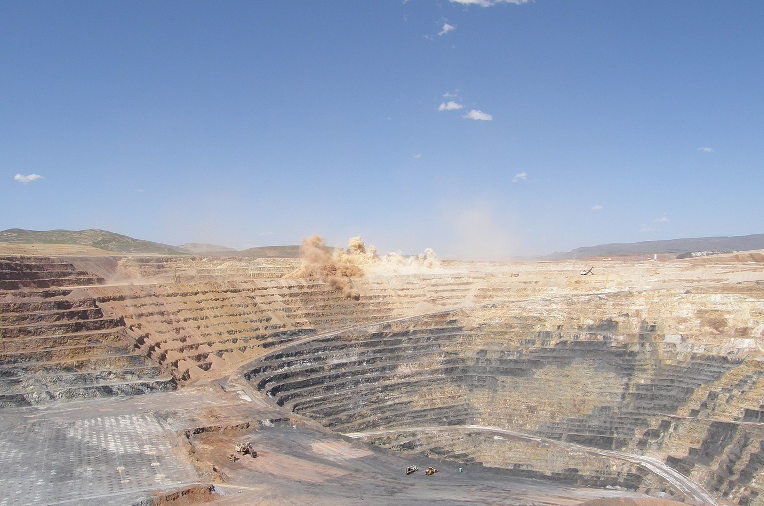Alberta’s Court of Appeal has rejected arguments made by Benga Mining, a company owned by Australian billionaire Gina Rinehart, that its provincial regulator treated the company unfairly when it rejected the controversial Grassy Mountain project last year.
The court ruling also dismissed complaints of unfairness made by the Piikani Nation and Stoney Nakoda Nation, which supported the massive open-pit coal mine in the Crowsnest Pass to feed Asian steel mills.
“At its core, Benga’s argument is that the panel should have preferred Benga’s expert evidence,”
ruled Court of Appeal Justice L. Bernette Ho in part of her 32-page decision.
Last June, a Joint Review Panel, conducted by the Alberta Energy Regulator, concluded that Benga’s proposal for an open-pit coal mine had grossly underestimated the impacts of selenium pollution on the Oldman River basin and overstated its economic benefits in a 679-page decision.
The report also noted that the destruction of Grassy Mountain in the Crowsnest Pass would threaten already endangered cutthroat trout populations and surface water quality in the Oldman River basin, which is already under stress due climate change and other developments.
Immediately after the province said no to the project, Benga Mining, a subsidiary of Riversdale Resources owned by Rinehart’s Hancock Prospecting, applied for an appeal on the grounds of “unfairness.”
But to many critics it looked like Rinehart’s company was having a corporate temper tantrum in a coal-friendly province that openly favours what it calls “responsible resource development.”
“I think that Benga thought that just going through the motions of an application entitled them to a project approval. But that is not how it works, and in the end they couldn’t prove to the Joint Review Panel or to the federal government that they could protect the important ecological or social values of the area, particularly clean water and threatened species,” Katie Morrison, southern Alberta’s conservation director for Canadian Parks and Wilderness Society told The Tyee.
Rinehart, Australia’s wealthiest person, is one of Australia’s most controversial mining magnates because of her right-wing views and litigious habits, which have targeted members of her own family.
Rinehart is a climate change skeptic who believes governments are strangling the mining industry with red tape.
Premier Jason Kenney’s government remains a staunch supporter of open-pit coal mines by Australian companies in the Rockies, even though the public overwhelmingly opposes such development.
In its appeal, Benga argued that the Joint Review Panel had ignored relevant evidence, denied the company the opportunity to address information gaps and had not properly consulted First Nations on what the rejection of the project meant to their the economic interests.
But Justice Ho dismissed all of Benga’s arguments as without merit, saying they had no basis in law.
Just because a company might disagree with a regulatory decision doesn’t mean it was performed unfairly, contravened the law or ignored the evidence, argued Ho in her 32-page decision.
Benga particularly alleged in its appeal that it was denied fairness because the panel said it would seek further information but then denied the project on the grounds that the company had supplied insufficient information on many issues, including groundwater contamination.
But Ho noted that the company did not point to a specific document on the record backing up that allegation. Moreover, a group of public intervenors in the hearing routinely pointed out that Benga’s application contained inadequate modelling and insufficient data.
Benga also argued that the panel disregarded, overlooked and ignored material evidence from Benga, and therefore erred in law.
Ho found no example of the panel ignoring evidence on the record.
“Benga’s arguments amount to assertions that the panel should have accepted Benga’s evidence. It is not an error of law for a decision-maker to accept or reject evidence before it.”
Ho also dismissed arguments of unfairness and incomplete consultation made by both the Stoney Nakoda Nations and Piikani Nation. Leaders of the two nations supported the project, unlike most other members of the Blackfoot Confederacy. They also signed an impact benefit agreement with the mining company long before a public hearing.
Given their reading of Canada’s environmental rules, Benga executives thought that signing benefit agreements with First Nations was the most critical component to winning project approval.
Both Nations exercised their rights to fully participate in the hearing process and said they had no objection to the project. However, countless community organizations, ranchers, grassroots Indigenous groups, municipal districts, artists and conservationists did.
As a consequence, Ho ruled that
“I do not see an arguable merit to suggest the panel had to seek additional information.”
Claims made by Benga and the two First Nations that the provincial government ignored First Nations’ rights was also contradicted by the makeup of the review panel that said no to the project: two of its three members are of Indigenous descent.
In a recent meeting with High River Mayor Craig Snodgrass, Kenney made it plain that he championed the industry’s expansion.
“He made it very clear that he is an unapologetic supporter of the industry,”
said Snodgrass, a vocal opponent of eight different proposals, largely from Australian companies, that would destroy nearly an area of the Rocky Mountains as great as is now being mined in B.C.’s Elk Valley watersheds.
Australian companies were lured to the province by one-per-cent coal royalties, deregulation, lax reclamation standards, and a pro-mining government whose ministers wrote letters of support for firms that hadn’t even been listed on the stock exchange.
Snodgrass said that the premier referred dismissively to the work of the five-member Coal Policy Committee that the province appointed to assuage public outrage over the proposals.
It tabled a report along with recommendations on the future of coal mining in the Rockies last month to Energy Minister Sonya Savage.
The committee collected 605 emailed submissions, held 59 meetings across the province and published 16 technical papers and 36 meeting submissions. ![]()
Teaser photo credit: By Geomartin – Own work, CC BY-SA 3.0, https://commons.wikimedia.org/w/index.php?curid=8338477





